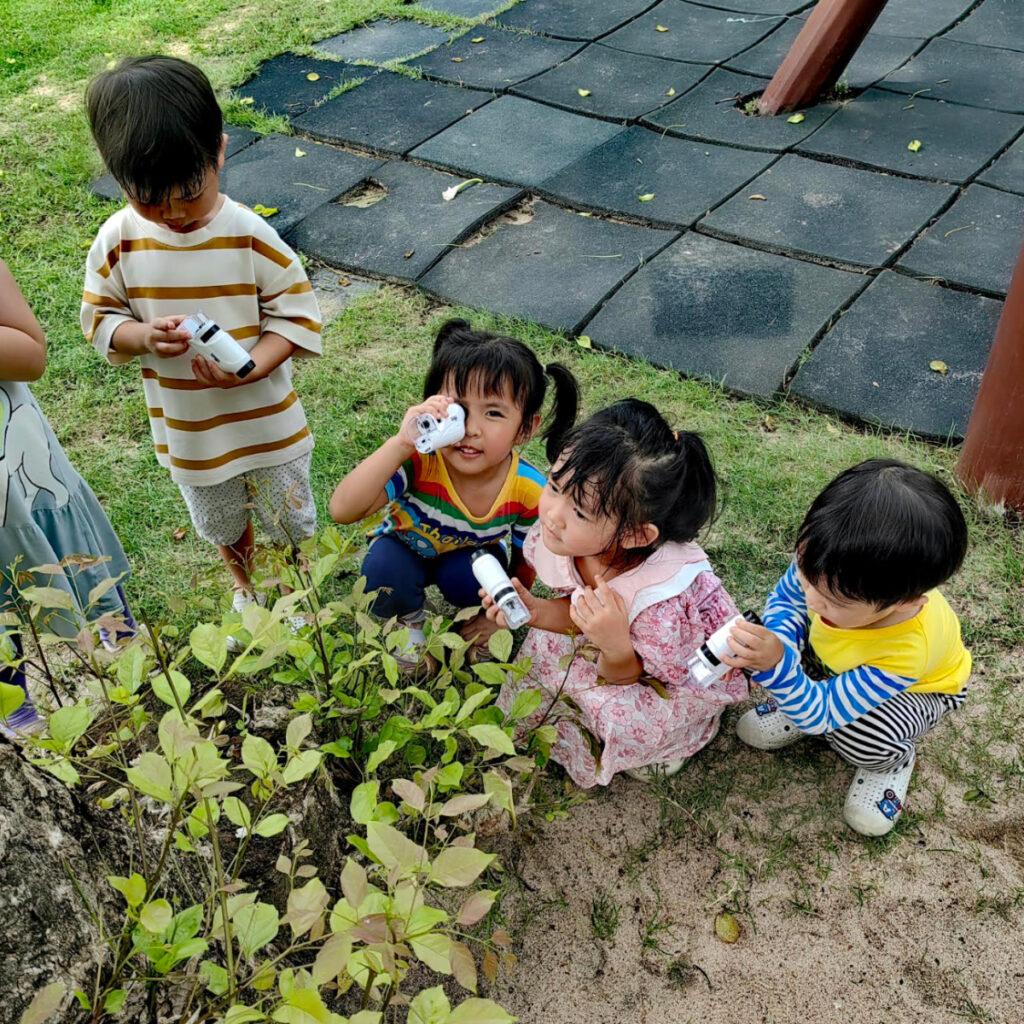
Sensory Integration and Social Skills
Sensory integration plays an essential role in a kindergarten child’soverall development and learning. At this age, children explore the worldprimarily

Happy learning in a natural environment
In addition to our regular programs we offer a Mommy & Me program for students 12 months to 3 years old, as well as Saturday playgroups and special classes.
For more information on any of our programs please contact us at
Why Choose Our School?

Our goal at Kidz Village is to give your child the best start in their education by providing a high-quality early years educational experience.

Kidz Village follows the Early Years Foundation Stage (EYFS) of the British National Curriculum.

Our classrooms blend seamlessly into the natural environment and we provide daily opportunities for our students to be engaged in indoor and outdoor learning activities.

We support physical , and emotional wellbeing through our carefully planned menu, by including daily play and learning in the outdoors, and providing a teaching staff that is fully committed to ensuring the safety, security and acceptance of your child.

The driving vehicle for our teaching practice at Kidz Village is The Project Approach. Project investigation will occur cross-circularly, and the students are supported to make decisions and take ownership of their learning.
OUR EARLY YEARS SCHOOL PROGRAM
Visit Kidz Village International Kindergarten
Our Special Programs
Only for students enrolled in our regular program
.
Inter Summer
International students
Thai Summer
Designed for Thai students
Inter Summer: – International students
Thai Summer: Designed for Thai students
Saturday Program is an opportunity for students to experience the Kidz Village philosophy and teaching approach.
Class for Kids age 1-3 years old with a parents to join a fun activity together. Every Thursday and Saturday 9.30 – 11 am.
What’s New

Sensory integration plays an essential role in a kindergarten child’soverall development and learning. At this age, children explore the worldprimarily

There is always something to be said about learning through observation. As human beings, we are naturally wired to problem

By Teacher Chantal As teachers, we often look for ways to make learning exciting, engaging and impactful for young children.


Monday – Friday 7:30 -16:00
Saturday 7:30 -16:00
Term 1: August – December
Term 2: January – April
Term 3: April – June
info@kidz-village.ac.th
0-2888-3337
500 Soi, Salathammasop 11 Salathammasop Road, Taweewattana Bangkok 10170
